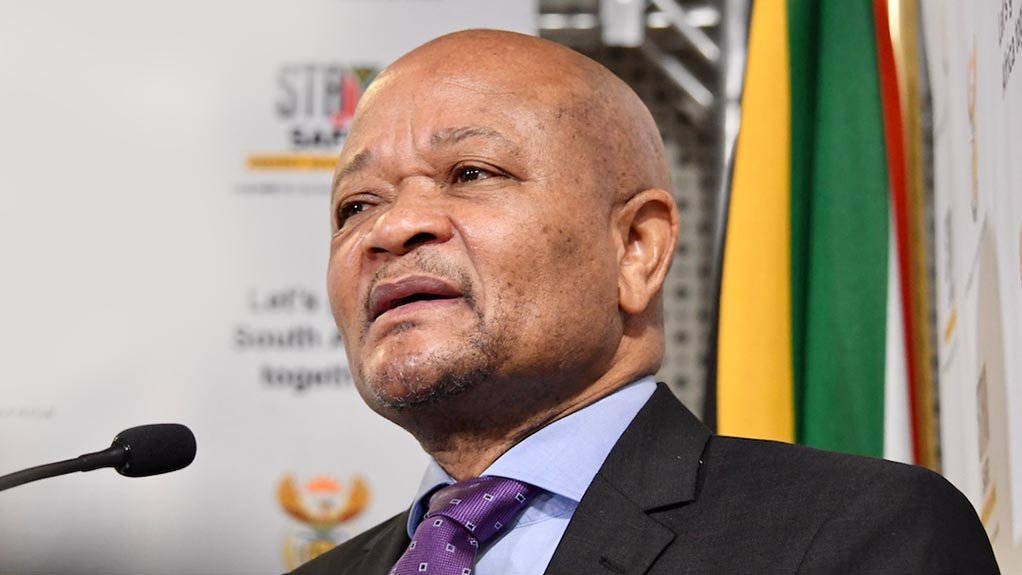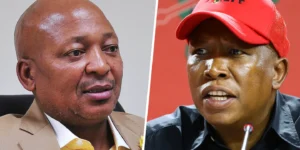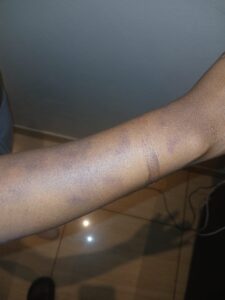By: Clyde Ramalaine
– Can Mchunu tell us how he will continue and give effect to the work of the Panel? –
As the saying goes, nature does not allow for a vacuum, which means it is one thing to inform South Africa that the Panel assigned to investigate corruption at the Water Ministry is coming to an end. It is entirely different when you do not tell South Africans your plans to continue and give effect to the Panel’s work.
On the 5th of August, President Ramaphosa announced his cabinet reshuffle. While aimed at effective and efficient governance, it is readily accepted that the reshuffle had a singular aim – to solidify CR 22 campaign ambitions for a second term. Ramaphosa announced his decision to split Human Settlements, Water, and Sanitation with the following words. “We have, therefore, decided that water and sanitation should be a separate Ministry, which will enable a dedicated focus on ensuring that all South Africans have access to a secure and sustainable supply of this precious resource.” For those who do not remember, this decision reverses an earlier decision that Ramaphosa made back in 2019.
His explanation for his initial merging of the two ministries: “At the beginning of this administration, we had brought these two portfolios together on the understanding that the provision of water is closely tied to the development of human settlements,” said Ramaphosa. “However, the reality is that water is a far broader issue, impacting not only on human settlements but also on agriculture, industry, mining, and environmental management.” Water security is fundamental to the lives and health of our people, to the stability of our society, and to the growth and sustainability of our economy.” [sic]
In November 2020, Minister Lindiwe Sisulu appointed a ministerial disciplinary advisory committee chaired by former Minister Susan Shabangu. The appointment of panels in Ministerial setting details a common practice. While Ministers usually nominate the panel members, the appointment is an administrative function executed by the Director-General. Systemic concerns of irregular expenditure as flagged in the Auditor General’s Report necessitated the Panel’s establishment. The primary reason for this high-level disciplinary committee is to investigate and criminally charge 166 companies, politicians, and government officials implicated in exorbitant tender corruption in which billions of rand are looted from the water ministry. SCOPA gave its support to the Panel. During a parliamentary briefing Minister Sisulu and the Chair of the Panel Shabangu confirmed the irregular expenditure totals R9 707 374 464.00. The mandate of the Panel was to steer the holding of identified officials fingered in wrongdoing accountable.
Hardly two weeks since the cabinet reshuffle, we learned that newly appointed Minister Senzo Mchunu dissolved the disciplinary advisory committee mandated to get to the bottom of the rot that has seen billions of rands in irregular expenditure registered over the years. Of particular interest is the official reason provided for the dissolving of the disciplinary advisory committee. The reason listed for the dissolution of the structure in warm bodies is that the contracts of the Panel members were linked to Sisulu’s term, which ended when she was moved to the Department of Tourism.
While Mchunu takes comfort that the contracts of the Panel members are linked to Sisulu, he does not explain that the reason for the Panel’s existence extends beyond those serving on the Panel. It appears Mchunu is at pains not to be labeled as the one who dissolved the Panel, thus missing the need to give leadership in the continuance of the Panel’s work. How then shall we interpret his silence on the way forward when he seeks not to own the Panel’s dissolving on a technical point? Is it possible that Mchunu came to the Water & Sanitation Ministry with his first task to deal with the Panel? We learned that Mchunu put the Panel on a 30-day notice period to wrap up its work. This period of 30 days certainly does not prove cognisant of the type and extent of work the Panel presided over. Does it not also fail to appreciate the ground already covered by the Panel, the invaluable contributions reported on to parliament?
In this regard, shall we afford Mchunu to attempt playing politics when the cancer of irregular expenditure and corruption remains rife in the Ministry he now heads? Is his failure to take responsibility not the most prominent sign that some other agenda drives his appointment and role as deployed? What may sit behind this designated first task for an incoming Minister? Perhaps we must remind Mchunu that the cornerstone objective for establishing the Panel extends beyond who occupies the ministerial office.
Four days after the first news on the dissolving of the Panel broke, Business Live led with a report that newly appointed Water & Sanitation minister Senzo Mchunu dismissed allegations that he dismantled a disciplinary advisory committee. He thus disowns the Panel and conveniently renders it that of his predecessor.
Let us attempt understanding Mchunu when he disclaims responsibility for the dissolving of the Panel in contending that the Panel’s work came to an end with the moving of the former Minister. Unfortunately, Mchunu’s apparent clinical and simplistic stance does not help us appreciate the actual status of the work already done by the Panel. He also does not explain how he will take this critical work forward since it may result in prosecutions. At this stage, it appears for Mchunu that since the Panel Members’ contracts were tied to the tenure of his predecessor renders this a historical reality. What does this say for continuity? Does this not confirm the silo practice of ministries often stand accused. Lost in translation is the status of the work already done by the Panel.
There is also an interest to know why it appears the task of dissolving or dismantling [semantics aside] the Panel was a primary and first task for Mchunu in his new assignment. One would have assumed that Mchunu as the incoming Minister, would have had a particular interest in ensuring the ongoing fight against apartheid continues and thus building on his predecessor’s work. It was naturally expected of him or any appointed minister to continue extending meaning to the adopted consequence management policy. It is a matter of public record that corruption is more than rife in the Water & Sanitation Ministry.
South Africans warrant knowing how the dissolving of the Panel aids the fight against corruption. How is the fight against corruption an undeniable reality, particularly in the Water Department, where billions remain unaccounted, strengthened? Since the Panel’s work is now brought to an end, what will Mchunu replace the structure since the original intention for the Panel continues to exist? Does it mean Mchunu will appoint a new panel? What does this say about state resources expenditure? While no accusations are leveled at Mchunu, South Africans warrant reassurances that the Water Ministry does not become a slush fund for a CR22 campaign.
Dissolving or bringing the Panel’s work to an end sends the wrong message to those involved in corrupt practices across the Ministry and waterboards.
Furthermore, it communicates that since Sisulu is no longer here, you can now relax. We may not know the urgency for Mchunu’s actions on the Panel, and we would hope that it is not in the attempt of saving implicated officials, politicians, water board members, and entities involved. In the absence of a communicated plan that underscores the continuance of the Panel’s work, we must be concerned that potentially ANC factional political agendas may be at play. Can Mchunu confirm that he will not interfere even if strategic people detailing politicians of his faction are identified?
We await Mchunu to share his plan to take forward the Panel’s work and his means to how he will deal with ongoing irregular expenditure and corruption that plagues the Water and Sanitation Ministry.
*Clyde Ramalaine, Political Analyst







